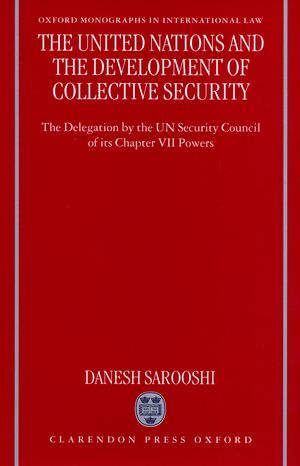
This book examines one of the most important challenges facing the United Nations today: the effective and lawful use of force by or under the authority of the UN to maintain or restore peace. In particular, the book provides a legal analysis of the institutional mechanisms and processes which the UN employs to use force to maintain or restore peace.
The UN Security Council is the main organ of the UN entrusted with the responsibility for the maintenance or restoration of peace. It is given broad powers of enforcement under Chapter VII of the UN Charter in order to achieve this objective. However, the Charter provision which was intended to provide the Council with a standing military force to carry out enforcement action has not as yet been implemented.
In response, the Council has sought to deal with an increasing demand for military enforcement action by delegating its powers in this area to other UN organs (e.g. the UN Secretary-General in Somalia, and the War Crimes Tribunals for Rwanda and the former Yugoslavia), UN Member States (e.g. the coalition against Iraq), and regional and collective self-defence organizations (e.g. NATO in Bosnia). It is this process of delegation of military enforcement powers by the Council which is the focus of the book.